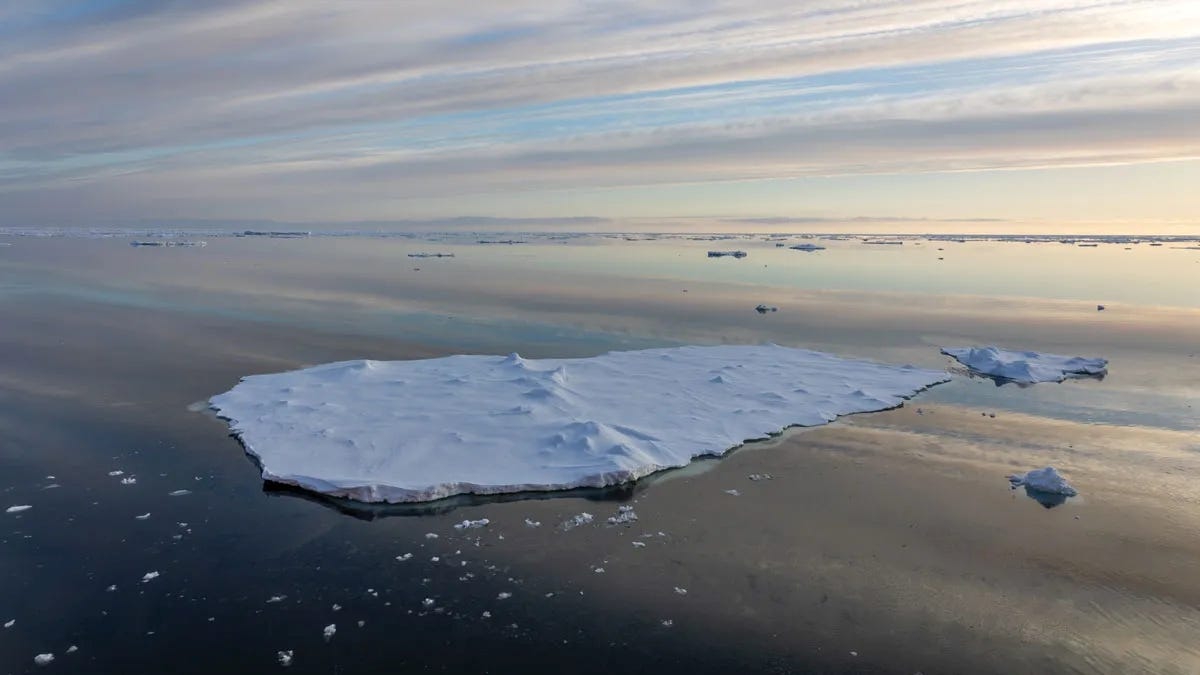✍️Science Writing News Roundup #198
The Next Pandemic: Can We Avoid Repeating History? + Using Artificial Intelligence to Up Your Science Writing Game + Seven lessons for journalism in the age of extreme heat.
Confined at Sea at the End of the World: Embedded on a research cruise in the Antarctic, a journalist joins a scientists’ “summer camp.” Sofia Moutinho joined GEOTRACES 17-ANT (GP17-ANT), a scientific cruise led by an international research team focused on understanding marine biogeochemical cycles. Image credit: Sofia Moutinho.
Welcome! You are reading the Science Writing News Roundup, a newsletter for science writers. You can also read this edition online. Did someone forward you this newsletter? Sign up here.
👩🏫Opportunities
Call for Applications: Story Grants on the Gendered Impacts of — and Responses to — the Environmental and Climate Crises in Asia Pacific. EJN is offering story grants to women journalists and those who identify as gender and sexual minorities* in the Asia-Pacific region to produce in-depth reports on the gendered impacts of the environmental and climate crises.
More opportunities and calls for pitches👉Bonus content for monthly supporters.
💻Articles
When the personal is political: A Q&A with Erin Zimmerman about the "messy and human" project of science. Julia Rosen talks with Erin Zimmerman about her new book, Unrooted: Botany, Motherhood, and the Fight to Save an Old Science (Melville House). Zimmerman trained as a botanist, and the book is partly a memoir of her experience navigating sexism in science. It’s also an examination of how botany itself—which Zimmerman calls a “dying science”—needs women and other historically marginalized scientists more than ever.
For series on gender-affirming care, a reporter seeks to keep trans voices front and center. “Coverage of this topic should continue to evolve and become more nuanced. One story, or two or five, might not touch on every detail of complicated topics, but as long as we’re listening to the sources we prioritize and allowing them to guide our coverage, we can continue to build trust, open space for more honesty and help tell their stories more accurately,” writes CHJ Fellow
Elise Takahama.
How uncritical news coverage feeds the AI hype machine: “The coverage tends to be led by industry sources and often takes claims about what the technology can and can’t do, and might be able to do in the future, at face value in ways that contribute to the hype cycle.”
A Day in the Life of Spoorthy Raman: Spoorthy Raman is an award-winning science and environmental journalist and author who mostly writes about our changing climate and how our lives are entwined with it.
More articles👉Bonus content for monthly supporters.
🎨Resources
Reporting on Climate and the 2024 US Elections. As Earth approaches critical tipping points, climate has become a key election issue. Here’s a short guide for connecting climate to your election coverage.
Seven lessons for journalism in the age of extreme heat: Earlier this month members and alumni of the Oxford Climate Journalism Network met to explore heat and how to cover it. Here are our takeaways.
🦀News
FRONTIERS Residency program awards grants to seven European journalists. Javier Pérez Barbuzano, Aisling Irwin, Ruairi Mackenzie, Jacopo Pasotti, Samuel Schlaefli, Vedrana Simičević, and Zuzana Vitková are the chosen candidates for the inaugural round of the FRONTIERS Residency Program. This ERC-supported initiative will finance journalists to spend 3 to 5 months at a European research institution.
The Call for Proposals is now open for SJF24, marking its grand return from October 28th to 31st for its highly anticipated 5th edition. This dynamic forum serves as a global platform where professionals from diverse corners of the world converge to exchange profound insights and innovative ideas within the realm of science journalism.
PET launches the inaugural Marcus Pembrey BioNews Writing Prize. The competition is open to individuals aged from 18-30 and requires entrants to write a 1000-word comment piece with the title: Which scientific or legal development in fertility, genomics or embryo research in the last 25 years do you think will have the greatest impact in the next 25 years?
📺Videos
Using Artificial Intelligence to Up Your Science Writing Game.
More videos 👉Bonus content for monthly supporters.
🦠Events
The Next Pandemic: Can We Avoid Repeating History? (June 12, 2024)
More events 👉Bonus content for monthly supporters.
✍️Jobs
Writer (Science Writer) at The American Physical Society (Remote)
More jobs 👉Bonus content for monthly supporters.
Thanks for reading! Subscribe for free to receive the next post in your inbox:
Worried you missed something? See previous posts here. What would you like to see in the newsletter? Please send me your suggestions: sciencewriting@substack.com



